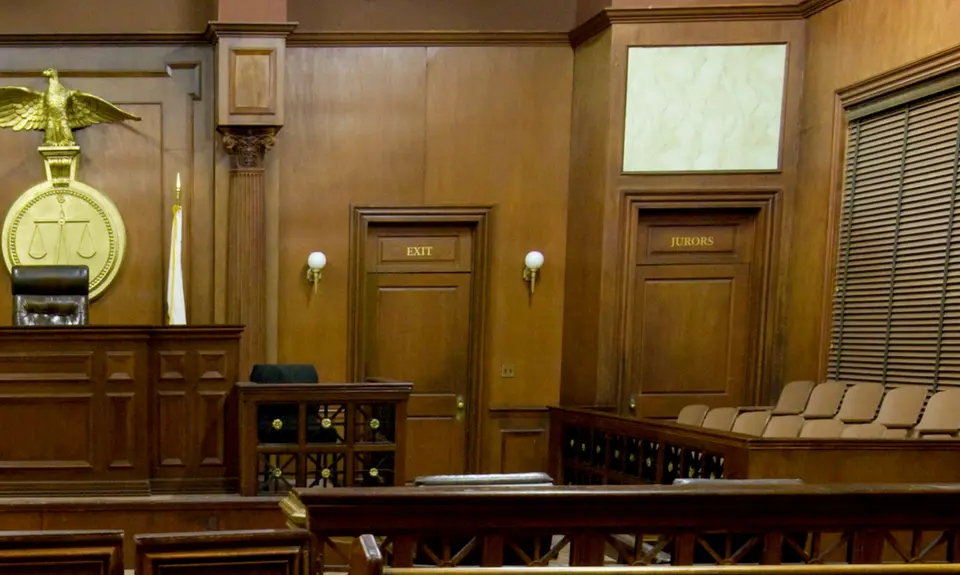“Confirmed Judges, Confirmed Fears” is a blog series documenting the harmful impact of President Trump’s judges on Americans’ rights and liberties. Cases in the series can be found by issue and by judge at this link.
Trump Fourth Circuit judge Marvin Quattlebaum tried in dissent to uphold a conviction despite a recent Supreme Court decision that required proof of an element of the crime that was not contained in the indictment or shown at trial. In an opinion by Chief Judge Roger Gregory, who was nominated both by President Clinton and President George Bush, the majority rejected Quattlebaum’s argument and reversed and remanded the case in its August 2020 decision in US v. Medley.
Jovon Medley was convicted of possession of a firearm by someone who had previously been convicted of a felony under 18 U.S.C. 922(g)(1). Although his appeal initially raised several issues under the Fifth and Sixth Amendments, it focused on an issue relating to a Supreme Court decision that came down shortly after he was convicted. In Rehaif v. United States, the Court ruled 7-2 that in order to convict someone under 922(g)(1), the government must allege in the indictment both the possession of a firearm and the individual’s knowledge of his “relevant status” as a person who was previously convicted of a felony and thus cannot possess a firearm. The Court also ruled that the government must prove these elements at trial and the jury must be instructed that it must find them as having been proven beyond a reasonable doubt in order to secure a conviction. Medley maintained that none of these requirements were met with respect to him.
As Medley and all three judges who heard the appeal acknowledged, because the Court’s decision came down after Medley’s trial while the case was on appeal, it must be determined whether a “plain error” occurred in Medley’s case – that there clearly was an error, that it affected Medley’s “substantial rights,” and that the error “seriously affects the fairness, integrity or public reputation of judicial proceedings.”
In a 2-1 opinion by Chief Judge Roger Gregory, who was nominated both by President Clinton and George W. Bush, the Fourth Circuit found that a plain error had occurred in Medley’s case, vacated his conviction, and sent the case back to the lower court. Gregory started by recounting that what happened in Medley’s case was clearly inconsistent with Rehaif. The indictment never mentioned the knowledge-of-relevant status element, no proof was offered concerning that subject at trial, and the judge never instructed the jury that it must find that Medley knew about his status. In fact, the judge specifically stated that the government is “not required to prove that he knew he was breaking the law.” Gregory concluded that this part of the “plain error” test was satisfied, and noted that the “parties agree” that the “failure to provide Medley notice” of the knowledge-of-status element in the indictment, and the judge’s failure to instruct the jury accordingly, were clearly erroneous.
After a careful review of Supreme Court and Fourth Circuit case law, the majority also concluded that the error affected Medley’s “substantial rights.” As a result of the failure of the indictment to mention the issue, the majority explained, “all the gatekeepers involved—the defense counsel, the judge, and the government—were operating under a false assumption that the Government did not have to prove Medley knew his prohibited status.” Medley thus did not receive notice and a sufficient description of the charges against him in the indictment, the majority went on, and “its defects violated Medley’s substantial rights.” Gregory’s opinion reached the same conclusion as to the “instructional error” and the failure to prove Medley’s knowledge of his status, as well as the “compilation” or cumulative effect of the errors.
The majority also found that the errors “seriously” affected the “fairness, integrity, or public reputation of judicial proceedings.” There can be “no question,” Gregory wrote, that the rights involved in Medley’s case are “central to upholding” all three, based on history and Supreme Court precedent. “Taken collectively,” the majority concluded, “we are confident” that failing to take action in light of these errors “would seriously affect the fairness, integrity, and public reputation of judicial proceedings.”
Trump judge Quattlebaum dissented. His primary argument was that the errors “likely had no effect on the outcome of the proceedings” and that the majority failed to determine whether this was the case. He claimed that the evidence in the record “overwhelmingly indicates” that Medley knew he had been convicted of a felony at the time he possessed the firearm and that the majority decision “does not apply the standards dictated by our precedent.”
Gregory carefully explained how the majority decision was consistent with applicable precedent, and specifically rejected the argument, also made by the state, that the court should itself evaluate the record and engage in “counterfactual inquiries” about what would have happened if the errors had not occurred. It would be “inappropriate”, Gregory continued, to “speculate how Medley might have defended” the case if the errors had not occurred, engage in “judicial factfinding” and “usurp the role” of the jury.
When the case is sent back to the lower court as a result of the majority decision, it will be up to the government to decide whether and how to proceed again against Medley without committing the errors that occurred. If it had been up to Quattlebaum, however, those “plain errors” and the conflict with recent Supreme Court precedent would have been simply ignored.
